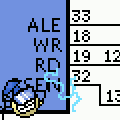|
I'm starting a new role on Monday, my first full-time gig in the industry. Does anyone have any advice as to what I could usefully discuss with my manager in our early 1-on-1s? (What are the expectations over the next couple of months, and what does meeting them look like?) A lot of it is obviously common sense, but I'm sure there are some things I wouldn't think to ask.
|
|
|
|

|
| # ? Apr 23, 2024 14:22 |
|
I think those are pretty good questions for when you're just starting out. As you get more experience you'll realize what you need to ask, but for your first job just showing up and doing stuff counts for a lot.
|
|
|
|
ultrafilter posted:The OP and resources post in this thread haven't been updated in 4-5 years. I suspect most of what's there is still current, but it might be worth looking through to see if anything needs to be updated. They posted today and have messages....
|
|
|
|
the first recommendation for someone like me with a degree elsewhere is a cs masters. seems weird
|
|
|
|
At my last job, I once asked my coworker what it was like it get a CS masters, and he said "you get out of it what you put into it," and I gotta tell ya that really solidified my choice in never getting one. All I did in undergrad was get boozed up and skip class, so I don't think I would try very hard in a masters program. Yet here I am making the same amount of money anyway.
|
|
|
|
My experience is if you're not sure you want a masters it's probably a giant waste. It's good for people who really enjoy academia (not everything has to be about career progression!) or if you want to specialize into something that you can't easily break into. Even for the latter a masters may not be the best route but at least it's all packaged up.Rude Mechanical posted:I'm starting a new role on Monday, my first full-time gig in the industry. Does anyone have any advice as to what I could usefully discuss with my manager in our early 1-on-1s? (What are the expectations over the next couple of months, and what does meeting them look like?) A lot of it is obviously common sense, but I'm sure there are some things I wouldn't think to ask. "What do you think we should cover in these meetings" is an excellent question for a 1:1. My team has a lot of new-to-the-industry people and generally at first it's really about "You're going to be kinda lost for a while, so please ask any question or ask for any demo no matter how stupid you think it is." You should also ask things like "I saw this guy suddenly show up and bark commands, who is he?" or "People were talking about such and such app or service, what is that?" You should keep some notes for that kind of stuff that doesn't make sense to ask in the moment but a manager/lead/mentor can explain. I'd also encourage you to get real demos of the application. One of my pet peeves is when developers have no idea how customers actually use the things they're working on. You don't need to spend hours with product management or support, but just a quick demo from someone who knows what things look like can make a big difference. This obviously depends on the role and the thing you're working on.
|
|
|
|
We send too many people off to college, but if you're capable of getting a bachelor's degree, it generally makes a lot of sense to get one as long as you don't end up with a stupid amount of debt. After that, degrees stop making sense as a thing you do for no reason, and you really need to justify your decision to get one. I wrote about this a bit in the old programmers thread:ultrafilter posted:There are a few good reasons to do a master's degree in CS. Off the top of my head: At least as of a few years ago, Silicon Valley startups largely viewed master's degrees as a negative signal. If you want to get involved in that particular morass, it might not be a good option.
|
|
|
|
From an old post (February 2018!) over in the "Oldies" thread that gives a different perspective on masters degrees if you're truly considering going for one:hendersa posted:Speaking of a masters degrees, I've always been of the impression that they're good and cool if you get them at the right time. So, I guess the question is "when is the right time?" Some folks like to get them while still in the school mindset. 4 + 1 programs (graduate with a masters degree in just one year after your undergrad) are good for this. This is OK and convenient, but you're missing out on a few things by doing it right away:
|
|
|
|
ultrafilter posted:I think those are pretty good questions for when you're just starting out. As you get more experience you'll realize what you need to ask, but for your first job just showing up and doing stuff counts for a lot. Lockback posted:"What do you think we should cover in these meetings" is an excellent question for a 1:1. Thanks for the advice, I appreciate it. ultrafilter posted:There are also programs that are basically condensed CS majors for people who have an undergraduate degree in something else, and those might be worth it for some people. I'd recommend doing a second bachelor's over one of these for anyone coming from a non-STEM field. I went back to uni to study CS after bailing out of a law PhD, and was herded towards a two-year master's program. I opted to do another undergrad degree instead, because I had no maths background to speak of, and wasn't confident in my fundamentals. I saw quite a few people coming in from similarly non-technical fields struggling to keep up with the pace of the accelerated programs. YMMV though, and it's worth keeping in mind that I'm in a country where doing a bachelor's degree doesn't saddle you with huge amounts of non-dischargeable debt.
|
|
|
|
Get a second bachelors, or see if you qualify for an MBA somewhere. You can still do programming when you get out, but you have a fall back career as a business type when you age out of tech at 40
|
|
|
|
i tried a 2nd bachelors in cs coming from a psych degree. i hated it and it was definitely not the right move. the classes moved too slowly and doing projects with 18yos sucked. i did a bootcamp and excelled in that environment. looking back maybe i should have done the masters at that instead
|
|
|
|
Hadlock posted:You can still do programming when you get out, but you have a fall back career as a business type when you age out of tech at 40 Oof. If 40 ages you out of dev jobs I am pretty hosed trying to shift careers at 39.
|
|
|
|
Hekk posted:Oof. If 40 ages you out of dev jobs I am pretty hosed trying to shift careers at 39. I wouldn't sweat it. In the midwest at least there are lots of developers above that age and I don't think they have problems finding jobs. Ageism exists for sure but not, like, preventing people from making mortgage payments or anything.
|
|
|
|
I have worked with lots of programmers older than 40. But they had all been programming for a bit. I started thinking recently about what makes a good programmer or someone who enjoys it. Those two parts might be related. Anyone have any suggestions? I'd start with methodical. I think that fits with both enjoyment and good at it.
|
|
|
|
I'm starting out at 35, turning 36 later this year.
|
|
|
|
I got my first engineering job at 31
|
|
|
|
I also returned to college in the hopes of changing careers to software development at 30. It was the best thing I ever did except quit Twitter. Obviously it's not an option for everyone due to personal support situations, but if you can do it in relative safety, then you should absolutely consider it. I have something of an unusual question, based on the way people have used the term IT around here in the last few pages. When I think IT, I don't think software development. I think Microsoft Exchange, turn-it-off-and-turn-it-on, infrastructure support tasks, helpdesk and administration type stuff. In the past, I've tried to describe my skillset to others and say something like "I can squash bugs and crank out code, but I am not strong in the IT aspect of TFS/Azure etc." Am I the only person making this distinction?
|
|
|
|
There are two uses of the term IT, one broad and one narrow. In the broad sense, everyone who's involved in making software run is in IT. In the narrow sense, it refers to people who keep the computers working. There are probably usages in between, but those are less common.
|
|
|
|
ultrafilter posted:There are two uses of the term IT, one broad and one narrow. In the broad sense, everyone who's involved in making software run is in IT. In the narrow sense, it refers to people who keep the computers working. There are probably usages in between, but those are less common. In my (admittedly limited) experience, I generally thought of IT in the narrow sense until I started working in an international environment with people outside of North America. In that environment I've seen the broader sense much more often. I've also started to see it (or at least start to recognize it when it appears) more frequently in the US since.
|
|
|
|
Magnetic North posted:I also returned to college in the hopes of changing careers to software development at 30. It was the best thing I ever did except quit Twitter. Obviously it's not an option for everyone due to personal support situations, but if you can do it in relative safety, then you should absolutely consider it. You're not making the distinction along the same lines as others. TFS and Azure are critical tools used by developers day to day (and I'd argue that every developer should have a strong working knowledge of their cloud platform and the automation toolset used by that cloud platform). Now, the nuts-and-bolts administration of those are likely to be handled by an infrastructure support group, but lumping an entire cloud platform in with "IT" would immediately give me some hints about the kinds of environments you've worked in and your typical approach to software development, and they are not positive hints.
|
|
|
|
New Yorp New Yorp posted:You're not making the distinction along the same lines as others. TFS and Azure are critical tools used by developers day to day (and I'd argue that every developer should have a strong working knowledge of their cloud platform and the automation toolset used by that cloud platform). Now, the nuts-and-bolts administration of those are likely to be handled by an infrastructure support group, but lumping an entire cloud platform in with "IT" would immediately give me some hints about the kinds of environments you've worked in and your typical approach to software development, and they are not positive hints. Yeah, my first job was sort of a mess. I'm getting better  But I appreciate your help in making that distinction. But I appreciate your help in making that distinction.
|
|
|
|
I need some advice. For the most part, I've been a general systems administrator and never managed to distance myself from helpdesk all that much. I realized not too long ago that I was just spinning my wheels and going nowhere and that I'd lost any sort of passion I'd had for IT support work. I also worked in the beer business, so when Covid showed up I ended up laid off. Getting laid off sucks, but it is less bad when you're ready and want to leave your job. After pondering (and reading blogs about) what comes next, I came to the conclusion that the part of IT I liked most was the problem solving. So I decided to give coding a try. I've been teaching myself C# for about 6 weeks now and have been really really enjoying it. I bought myself a subscription to Pluralsight and the Yellow Book and got cracking. At this point, I have the basic syntax down. I can get on LeetCode or HackerRack and do the basic exercises (the medium ones still break my brain). I've written one awful spaghetti code app that uses WPF and does some simple stuff like grabbing a json from the web and some basic user interaction. Now here is my question. What do you all think about coding bootcamps? I've mostly done all the C# low hanging fruit I think. I suspect that what I need to focus on now is coding practice/repetition, OOP, and design patterns and things like algorithms. And then some of the other stack technologies. I know HTML/CSS but JavaScript is a mystery. I can write a basic query in SQL, but that's it. Something like a bootcamp is enticing because will always point me in the right direction for the next step. But it's a lot of money to pay for what is basically just an online series of videos with access to tutors. I think that right now I could either commit to remaining unemployed for a while longer and do the bootcamp. I'd rack up a bit of debt paying for the schooling, but I have enough in savings to pay for the cost of living while doing that. Or keep up my self-teaching while job searching, and then get a job to hold me over until I can get a portfolio together. I would expect this to take like a year and a bit as I'd slow down once I was working again.
|
|
|
|
Bias: I was a sales/marketing person who made an app in my spare time, then did a boot camp before transferring internally from marketing to engineering and have been a software engineer for almost a decade since. Response: I think the right boot camp is amazing, but to be fair I also was a student when they were in their infancy. I really donít know what combination of efficiency at teaching + saturating the market theyíve achieved.
|
|
|
|
My wife and I graduated from App Academy in 2016. Sheís now at google and Iím at a robotics company. It was the best thing Iíve ever done for myself. I do not know what the market is like these days though for new grads. You can read my post history in this thread for the complete journey. Itís overwhelmingly difficult but was absolutely worth it.
Harriet Carker fucked around with this message at 17:42 on Aug 17, 2020 |
|
|
|
I've posted about them before but coding camps can be very good IF you take it seriously. They are a tool, just getting through them doesn't mean you get a job. But I've hired a couple people who went through them, and interviewed a bunch more I didn't hire. You are doing the right thing doing some work right now. I would suggest doing some Python and doing some Javascript to get your head around some different languages so you'll be better placed to understand more of what they will teach you. As far as C#, make sure you are looking at what the market is in your area. I wouldn't really suggest C# where I am but different locales have different needs. Find a good bootcamp, take it very seriously, keep learning on your own and you can definitely help your career.
|
|
|
|
I'd also say doing bootcamp and getting some experience playing with Cloud technologies would put you on a really good path towards SRE/Cloud Management/etc which you may find a better fit with your IT background and your problem solving desire.
|
|
|
|
Fender posted:I need some advice. For the most part, I've been a general systems administrator and never managed to distance myself from helpdesk all that much. I realized not too long ago that I was just spinning my wheels and going nowhere and that I'd lost any sort of passion I'd had for IT support work. I also worked in the beer business, so when Covid showed up I ended up laid off. Getting laid off sucks, but it is less bad when you're ready and want to leave your job. I can't say much about the bootcamp, but don't worry too much about javascript. I find it very similar syntax to C# just not strongly typed. While you make your bootcamp decision, if you want something to do, then I'd recommend building a basic MVC web application. It should be easier than the WPF app (even if it's bad!), and brings in all the details related to hosting a web app and the MVC framework. Depending on your level of comfort windows IIS is easy, but you can take a shot a .NET Standard and host it on linux or something. Just some ideas!
|
|
|
|
downout posted:I can't say much about the bootcamp, but don't worry too much about javascript. I find it very similar syntax to C# just not strongly typed. Javascript uses a completely different inheritance model than C# and is full of footguns. The syntax is C-style curly braces, sure, but it's a very different beast. I'd recommend typescript over straight Javascript. It imposes some degree of sanity on Javascript and protects you from some of the worse language "features".
|
|
|
|
Yeah if you're going to willingly sink any time into the trainwreck that is the JavaScript ecosystem, typescript is probably the most sane way to go about it. If you have a choice I'd look at learning python so your career isn't automatically typecast as a front end developer for life
|
|
|
|
Hadlock posted:Yeah if you're going to willingly sink any time into the trainwreck that is the JavaScript ecosystem, typescript is probably the most sane way to go about it. Is that bad. Also how do I escape it
|
|
|
|
barkbell posted:Is that bad. Also how do I escape it Front-end devs tend to make less money, presumably because it's possible to become proficient with front-end ecosystems on one's own, so there's a larger talent pool. Learn more than JS/CSS/HTML, even though just knowing those can be kind of a lot.
|
|
|
|
Before the quarantine I thought FE was harder to find, at least a FE engineer who had some experience. So it ebbs and flows. Regardless, it's usually good to learn more than 1 thing and Python is widely used, easy to use, and a great learning language (imo). Part of this is why I said to check your local market because Java can also be in high demand in certain industries, though I'd say in general play with Python first.
|
|
|
|
New Yorp New Yorp posted:Javascript uses a completely different inheritance model than C# and is full of footguns. The syntax is C-style curly braces, sure, but it's a very different beast. Those are good points. That said, I don't think it hurts to learn some basic javascript. Don't build an entire client application out of it or anything. Either way, if you get anywhere near web dev (backend or frontend), you will be encountering javascript for better or worse, so having a rudimentary experience with it will not be wasted time. edit: c# is BE, building a basic web application in VS is fairly simple with the project template, and it helps quickly learn the http request lifecycle, hosting, FE stuff, etc. downout fucked around with this message at 14:30 on Aug 18, 2020 |
|
|
|
Munkeymon posted:Front-end devs tend to make less money Do you have any data on this? It does not match my experience. I was a little worried about being cast as a front-end dev but I actually really like it now. TypeScript is great and modern systems like React Scripts + eslint/prettier make getting started in a project super simple.
|
|
|
|
Front-end and back-end devs make the same amount of money at similar education and experience levels, but front-end has more junior and self taught people, so that skews the overall comparison.
|
|
|
|
I'm curious, as I see almost all of the job chat here relating to web dev, dev ops, cloud computing, etc. With the maker movement rolling along seriously for at least a decade now, I expected to see more folks interested in getting into microcontroller dev, embedded systems, IoT, FPGAs and the like. I realize that embedded development's barrier to entry (including costing money for the hardware itself) is probably scaring a lot of people away from those areas. After all, your desktop PC, web browser, and millions of examples and projects floating around out there is enough to get a good jump start on learning web dev. But still... spending $50 for an Arduino, Raspberry Pi, breadboard, wires, some sensors, etc. isn't a huge investment. $100 if you throw a Humble Bundle of embedded dev books in there and an LCD screen? Maybe it's just too different from what people are interested in these days? Maybe it is just too intimidating to get started? Maybe it is because there are way, way fewer embedded jobs compared to web dev? Like, orders of magnitude difference between the two. But, almost all of the embedded systems jobs that I've seen have been really good pay and benefits. Working regular hours, no on-call stuff, people still having enough bandwidth left to take grad classes in the evening, layoffs are much more rare, less emphasis on speed and more on quality, less "trendy" stuff like open floors and shared workspaces. You also don't need to be at a FAANG or even in a big coastal city to make good money doing it. Embedded stuff isn't for everyone. Not by a long shot. It takes a certain mindset and aptitude to enjoy doing that type of work. But still, if that whole area piques your interest, there are a lot of free resources floating around to start learning about it. Something to consider, anyway. Web dev isn't the only type of development left in the world. Also, not having a BS degree in CS/CE/EE isn't the barrier to embedded development that it once was. A good portfolio of 2-5 interesting projects using related chipsets/tools/platforms will often get you in the door for an interview at many smaller companies through the midwest and southern US.
|
|
|
|
hendersa posted:embed stuff here... Have any resources to look at to get started? Munkeymon posted:Front-end devs tend to make less money, presumably because it's possible to become proficient with front-end ecosystems on one's own, so there's a larger talent pool. Learn more than JS/CSS/HTML, even though just knowing those can be kind of a lot. I feel this. I have a 'full stack' job doing angular and java/spring. I'm mostly on my own and I have a lot more difficulty finding java solutions than angular ones. The only other dev is not a java expert either. I'm not sure of how to learn best practices on my own.
|
|
|
|
hendersa posted:Also, not having a BS degree in CS/CE/EE isn't the barrier to embedded development that it once was. A good portfolio of 2-5 interesting projects using related chipsets/tools/platforms will often get you in the door for an interview at many smaller companies through the midwest and southern US. What sort of projects would be good?
|
|
|
|
barkbell posted:Have any resources to look at to get started? Adafruit's "Learn" portal is full of stuff to check out. Basic electronics and Arduino microcontroller stuff, mostly, with code available and all of the components conveniently purchased through Adafruit. Derek Molloy's Youtube videos on general electronics and the BeagleBone family of SBCs are very good to give you an overview of things. If this sort of stuff looks interesting, I highly recommend Derek's books on the BeagleBone Black and the Raspberry Pi. sinky posted:What sort of projects would be good? Imagine if you had done one or two of those projects. What would you need to know to develop it? How would you even go about doing it? The answers to those two questions are what your portfolio projects will demonstrate for you. Or, at least, open the door so that you can explain it for yourself to an interviewer. I've made tons of stuff for fun over the years, and each thing that I made got more and more complex. I started out with simple tutorial-ish stuff and just kept bolting new stuff on, learning new tools, trying new software libraries, etc. The big thing is that you can't just jump into making some huge thing because you want something for a portfolio. Make something you think is interesting and add it to the pile. Eventually, you're going to have a lot of projects that do stuff. You could combine them a la Voltron to make a more complex system, or you could just impress a potential interviewer by stuffing your github full of all of the different things that you've tried. Sometimes, an effective tinkerer who has hands-on experience with a lot of things is more important than a big project that almost looks like a commercial project. It all depends on the company. One company cold-called me for a consulting project simply because I took the time to write good documentation for one of my hobby projects. They were Googling around for some info, came across my documentation, and figured that if I could document it that well then I must be an expert of some sort. Being able to go into the details of your projects when you're asked is key. If you can actually explain how all of the pieces work, in a simple, easy-to-understand way, you're well on your way through the job interview. If you create something interesting, write about it! There are a bunch of maker magazines that do nothing more than show off projects that people have made. Basically, you contact the "write for us" contact e-mail for a magazine, say what you've done and how it works, get the green light to write an article, write 1000-2000 words on it, do a little editing, and get your article published. Sometimes, you write an article and it never sees the light of day. It happens. But, you forced yourself to sit down and organize your thoughts about it and how it works. Getting an article published is one hell of a bulletpoint on your resume or CV, and you get paid a little bit, too! I've done it a bunch of times over the years! Here's one from earlier this year that I wrote by just dusting off my notes from a project I did a few years back. You'd probably be better off starting by taking a tutorial project from Adafruit, learning all you can about the pieces of it, and then expanding on it as you feel comfortable. Things like microcontroller-based sensors that you can talk to over a TCP/IP connection are a basic segue into IoT, for example. Raspberry Pi and BeagleBone Black projects lead you into embedded Linux programming. Then, increase its functionality while learning the tools to develop and debug. It isn't the project so much as it is the knowledge that you'd need to make the project. Making a toaster that tweets when it pops isn't something that a company would find useful, per se, but it demonstrates that you can find the resources you need and stitch them together into a working project. Make a few projects, make some YouTube videos, tweet them, put the code in GitHub, and go from there. Good luck! 
|
|
|
|

|
| # ? Apr 23, 2024 14:22 |
|
Thanks for the detailed reply! Maybe I should actually use that arduino kit I bought over a year ago
|
|
|

































